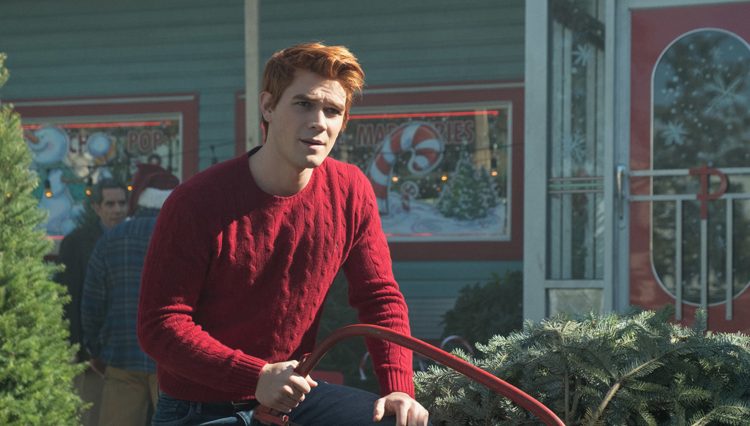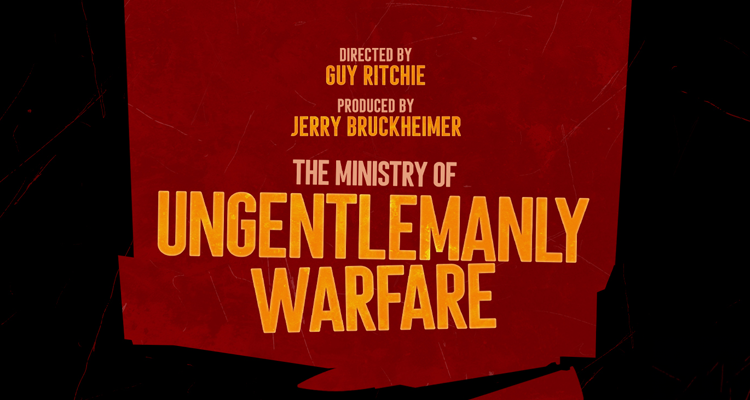Minor spoilers ahead.
Two years ago, comedian Jordan Peele (of the comedy duo Key and Peele) made a name for himself in the film world with his directorial debut Get Out, a horror film that followed an African-American man who goes to meet his white girlfriend’s parents and uncovers increasingly horrifying revelations about them as the weekend unfolds. It touched on many modern cultural issues with perfection, racking up universal critical acclaim and even going on to be nominated for Best Picture at the 2018 Academy Awards, managing to sneak into an awards season race that the horror genre often has a hard time striving in.
Peele returns with Us, a sophomore effort that follows the Wilson family (Lupita Nyong’o, Winston Duke, Shahadi Wright Joseph, Evan Alex) who are on a vacation at their summer house in Santa Cruz. One night, a family dressed in red suits appears in their driveway and initiates a home invasion, revealing that they are the Wilson family’s doppelgängers (dubbed “The Tethered”), and are there to exact revenge on the family as a result of living in their shadow for their whole lives without any say in the matter.
It’s no surprise that Peele knocks it out of the park with his sophomore effort, proving to beat the odds and not disappoint the legions of fans who have eagerly awaited this latest outing. It’s a startling, impressive horror film that will certainly keep viewers on the edge of their seat. Speaking as someone who doesn’t usually get scared at horror films, I can say with certainty that Us is fraught with tension and is, without a doubt, one of the scariest movies of the past few years. It’s thrilling in a more straightforward sense, acting as more of a straight-up slasher than its predecessor is and feeling more of a rush of blood to the head in its execution of its scares.
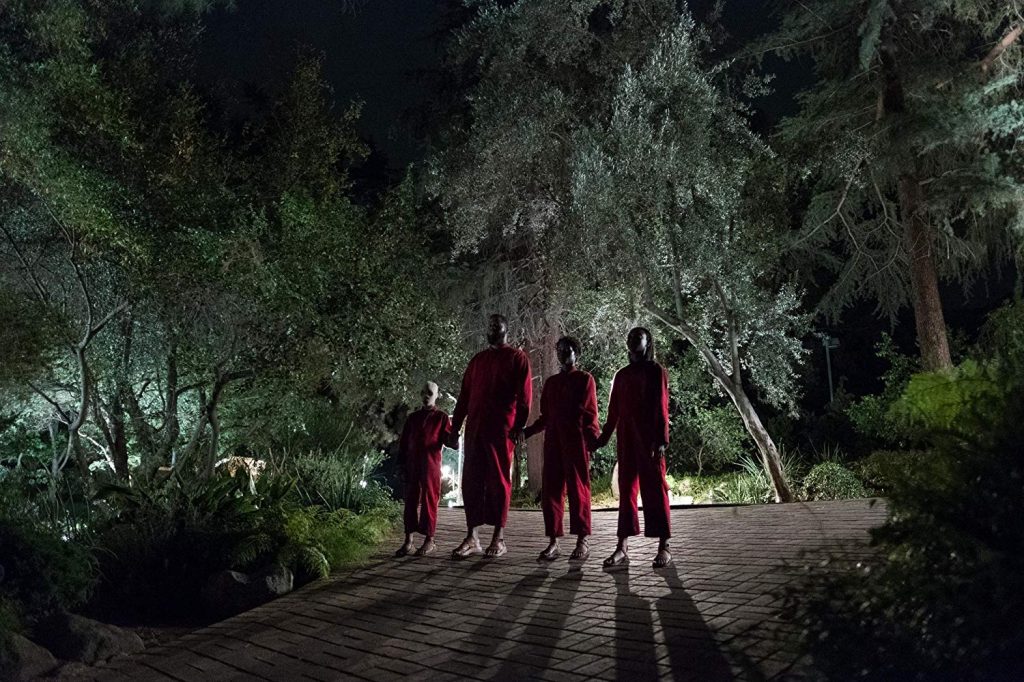
One of the biggest conversation starters that can be acknowledged about Us is that it’s trying to say something about us by saying absolutely nothing at all. This is something quite profound and Peele makes it known that one of the most recent revelations of modern culture is that diverse movies shouldn’t have to be considered “political” in one way or another to be diverse, and simply being themselves should be celebrated. Basically, what Peele is trying to spot and raise questions about here is that those who try so hard to find meaning in this movie aren’t going to find it because there isn’t anything much to say (or at least, not as much as Get Out). It can be asked if maybe the film poses a question about how we can live with ourselves after finding the truth about ourselves, but even that seems like a bit of a stretch.
I had a conversation with a friend of mine (you can read his review here) about the film after we had both seen it separately, and he mentioned something very interesting in relation to the above statement. “We’re so used to black casts occupying ‘woke’ films but it’s so important that they just…exist,” he said. “During the first 20 minutes, I was like, ‘okay there’s got to be an allegory behind this, Jordan’s too smart to not include one somewhere’ but by doing so, I played myself. It’s just that those conventions are so long-held that they’re ingrained into my moviegoing experience and I would argue that it’s more important because it chooses to ignore opportunities of a commentary.”
Choosing to focus on the more technical aspects of the film, though, Peele once again checks pretty much all of the boxes. One of the most striking things the viewer will notice first-thing is the beautiful lighting, which almost acts as its own character in the way its glimmer or darkness masks the subjects of this strange world. The boardwalk is bound to become an iconic stature all on its own (not unlike Get Out‘s Armitage household) with its eerily creepy imagery that hooks you right from the get-go. It’s one thing to have a good setting, but it’s another to have a memorable one and Peele gives viewers both.
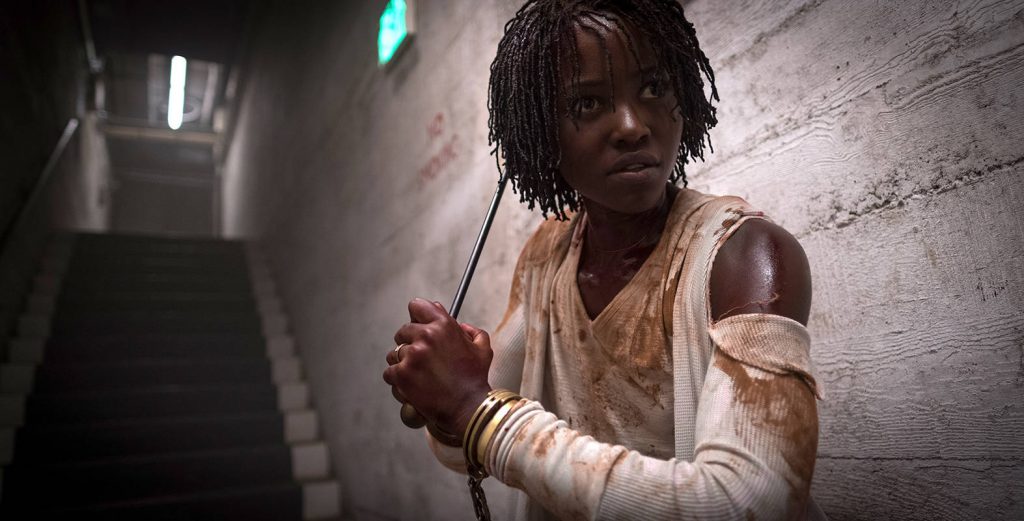
It’s not an entirely unknown fact that you can’t really have a film without central figures that play a key role in the story, and one of the most apparent things here is that Lupita Nyong’o makes this film her own. She’s proven her incredible range in the past with films like 12 Years A Slave, but she easily gives one of the best dual performances in quite a while. It’s one thing to play the part of a singular entity, but doubling down on the effort while being completely unique in both roles is something else. She could’ve easily played both her parts with the same mannerisms, but the choice to make them each completely separate is just as smart as it is insanely unnerving. The raspy voice of her Tethered doppelgänger is one of the most bone-chilling things you’ll hear all year, and that’s an understatement.
It’s not just Nyong’o that’s brilliant, however; Winston Duke is truly awesome as Adelaide’s husband Gabe, a wisecracking but lovable guy who also cares about the safety of his family and will do anything to protect them, acting funny when wanted and tough when needed. The silence of his Tethered doppelgänger is necessary, but that doesn’t make it any less frightening. The children are also extremely well-rounded and give great supporting performances. Usually, it’s common that the kids in horror films tend to be annoying and irritable, but that’s not the case here, which is both surprising and exciting.
And then there’s Michael Abels’ mesmerizing original score, which feels like one of the most disturbingly beautiful things that anyone will hear all year. I’m still in awe at Abels’ Oscar snub for Get Out (his score for the film is easily one of the best of the past few years) but here’s to hoping he gets some recognition this time around. It’s truly a masterpiece in crafting both excitement and tension, and doesn’t take long to create a sense of dread and unease within the viewers’ mind. The opening theme is stellar on all levels, and there’s really no way to physically put into words how much of an experience this score is.
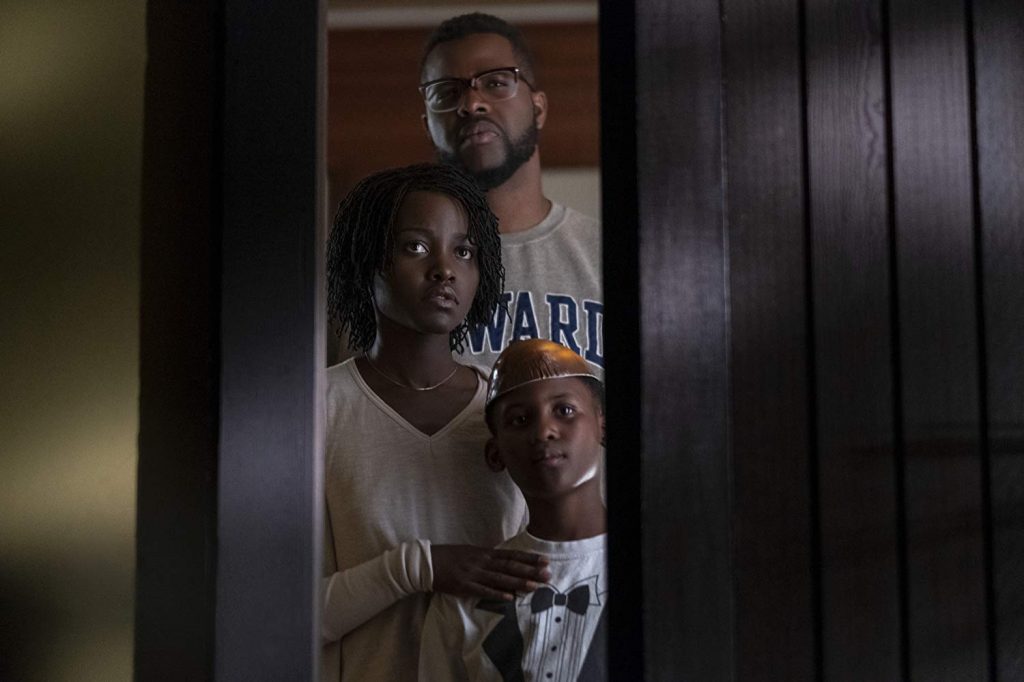
Us isn’t the immediate home run that Get Out was, but the biggest thing it has going for it is that it’s already one of the most hyped films of the year and as a result of that, it’ll certainly make itself known as both a horror film with more bite than many in this day and age care to have. It perpetuates questions that may not even be there, but it stands out amongst the crowd as a result. While not a perfect film by any means (the final twist ultimately feels a bit rushed, for one), it’s more necessary of your attention than almost any film currently in theaters. It’s safe to say that this is a movie that viewers will definitely not want to miss out on during its theatrical run.


